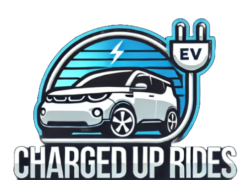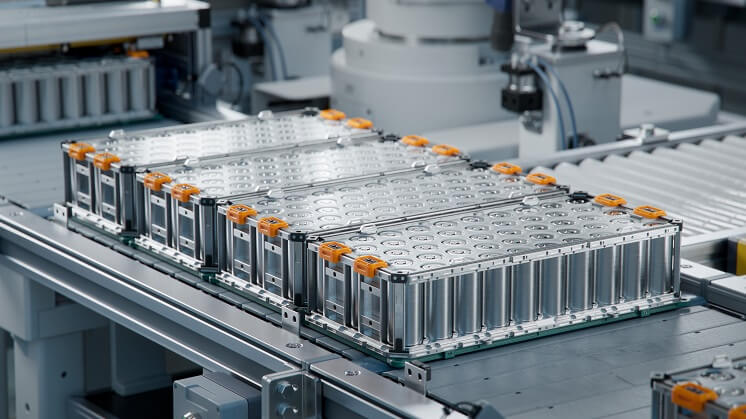Converting your Ford F-150 to electric is an exciting journey that not only modernizes your vehicle but also contributes to a more sustainable future. One of the most critical components in this conversion is the battery, which serves as the energy source for your electric powertrain. Choosing the right battery involves understanding various factors, including battery chemistry, capacity, size, weight, and compatibility with your vehicle’s systems. This blog will guide you through the process of selecting the perfect battery for your Ford F-150 electric conversion.
Understanding Battery Types
When considering batteries for your electric F-150, there are several types of battery technologies available, each with its own advantages and disadvantages:
1. Lithium-Ion Batteries
Lithium-ion batteries are the most popular choice for electric vehicles due to their high energy density, efficiency, and relatively lightweight design. They come in various chemistries, including:
- Lithium Iron Phosphate (LiFePO4): Known for their thermal stability and safety, LiFePO4 batteries have a longer cycle life and are less prone to overheating. They are ideal for applications where safety is a concern.
- Lithium Nickel Manganese Cobalt (NMC): These batteries offer a good balance of energy density, power output, and cost. They are suitable for high-performance applications, making them a popular choice for electric conversions.
- Lithium Nickel Cobalt Aluminum Oxide (NCA): These batteries provide high energy density and are often used in high-performance electric vehicles. However, they can be more expensive and less stable than other lithium-ion options.
2. Lead-Acid Batteries
Lead-acid batteries are a more traditional option, often used in older electric vehicle conversions. While they are cheaper and more widely available, they are heavier and have lower energy density compared to lithium-ion batteries. Lead-acid batteries also have a shorter lifespan and require more maintenance.
3. Other Emerging Technologies
New battery technologies, such as solid-state batteries and flow batteries, are being developed and may offer advantages in terms of safety, energy density, and lifespan. However, these technologies are still in the early stages of commercialization and may not be readily available for electric vehicle conversions.
Key Factors to Consider When Choosing a Battery
When selecting a battery for your Ford F-150 electric conversion, consider the following factors:
1. Capacity and Range
Battery capacity is measured in kilowatt-hours (kWh) and determines how much energy the battery can store. A higher capacity allows for a longer driving range. For example, the Ford F-150 Lightning offers two battery options: a standard-range battery with 98 kWh and an extended-range battery with 131 kWh, providing ranges of approximately 230 and 300 miles, respectively.
Evaluate your typical driving needs to determine the appropriate battery capacity. If you plan to use your F-150 for long commutes or heavy-duty tasks, opt for a battery with higher capacity to ensure you have sufficient range.
2. Size and Weight
The physical dimensions and weight of the battery are crucial considerations, especially in a truck like the F-150. A larger and heavier battery can affect the vehicle’s handling and payload capacity. Ensure that the battery fits within the designated space in your truck and that the weight distribution remains balanced.
3. Voltage Compatibility
The voltage of the battery must be compatible with the electric motor and inverter you plan to use. Most electric vehicle systems operate at either 48V, 72V, 96V, or higher. Make sure to select a battery that matches the voltage requirements of your powertrain components.
4. Charging Speed and Infrastructure
Consider the charging speed of the battery and the available charging infrastructure. Some batteries support fast charging, allowing for quicker recharging times. Assess your charging options, including home charging stations and public charging networks, to ensure you can efficiently recharge your vehicle.
5. Cost and Budget
Battery costs can vary significantly based on technology and capacity. Lithium-ion batteries tend to be more expensive than lead-acid options, but they offer better performance and longevity. Set a budget for your battery purchase and consider the total cost of ownership, including potential savings on fuel and maintenance over time.
Recommended Battery Options for Ford F-150 Conversion
Here are some recommended battery options suitable for converting your Ford F-150 to electric:
1. Tesla Battery Modules
Repurposed Tesla battery modules are a popular choice for electric conversions. They offer high energy density, reliability, and performance. Tesla’s battery technology is well-regarded, making it a viable option for those looking to maximize range and efficiency.
2. A123 Systems Lithium Iron Phosphate Batteries
A123 Systems produces lithium iron phosphate batteries that are known for their safety and long cycle life. These batteries are suitable for applications requiring high discharge rates, making them a good fit for electric trucks.
3. LG Chem NMC Batteries
LG Chem offers lithium nickel manganese cobalt batteries that provide a good balance of performance and cost. These batteries are widely used in electric vehicles and can be a solid choice for your F-150 conversion.
Installation Considerations
Once you have selected the appropriate battery for your electric F-150 conversion, consider the following installation tips:
- Secure Mounting: Ensure that the battery is securely mounted to prevent movement during driving. Use appropriate brackets and supports to hold the battery in place.
- Wiring and Connections: Follow proper wiring practices to connect the battery to the inverter and electric motor. Use high-quality connectors and cables rated for the battery’s voltage and current.
- Battery Management System (BMS): Integrate a BMS to monitor the battery’s state of charge, temperature, and cell balancing. A BMS is essential for maintaining battery health and ensuring safe operation.
Conclusion
Choosing the right battery for your Ford F-150 electric conversion is a critical decision that impacts the vehicle’s performance, range, and overall driving experience. By understanding the different battery types, considering key factors such as capacity, size, and compatibility, and selecting a reputable battery option, you can ensure a successful conversion that meets your needs. Embrace the benefits of electric driving and enjoy the journey of transforming your Ford F-150 into a powerful and efficient electric vehicle!

